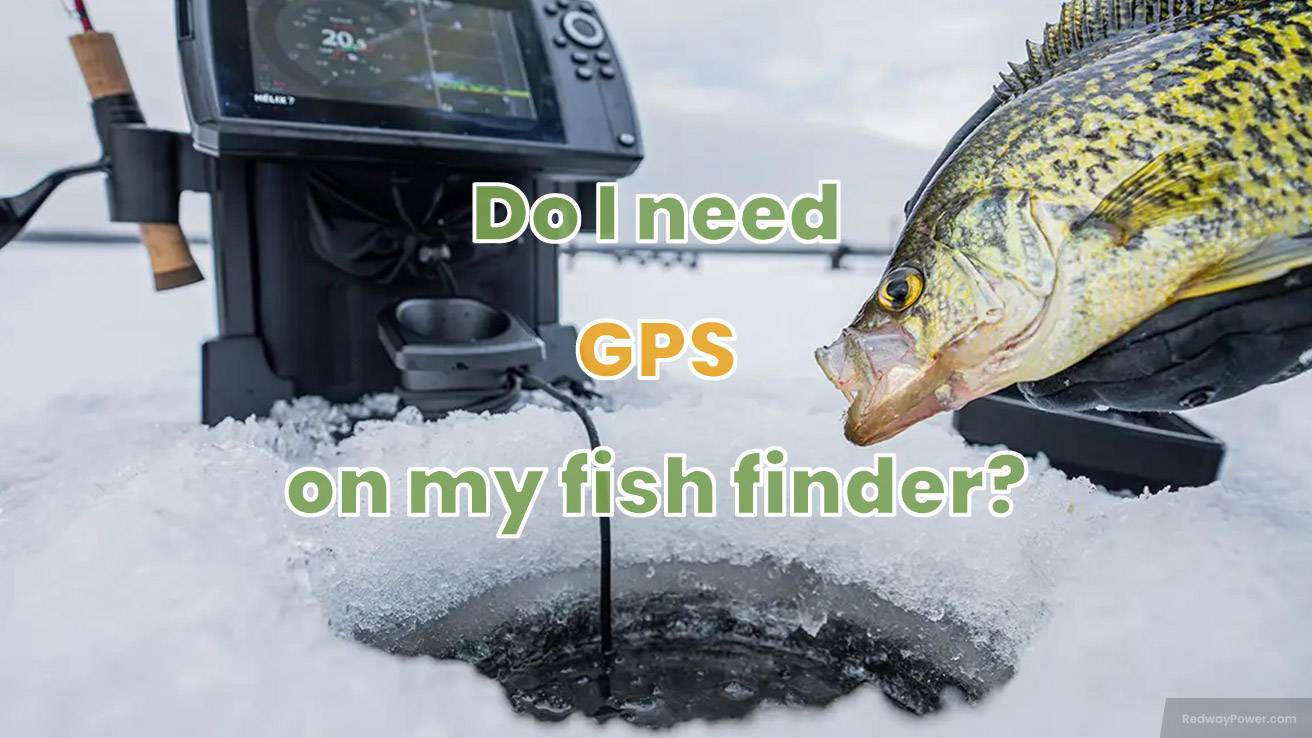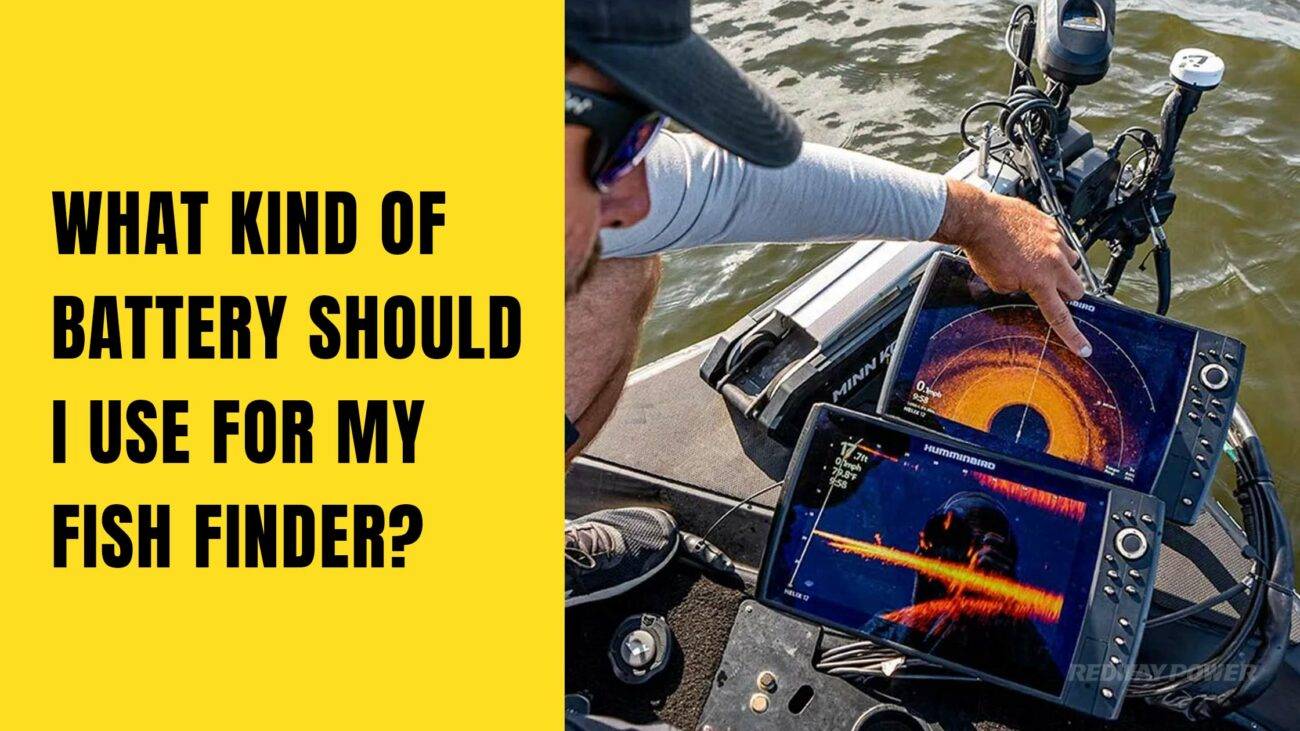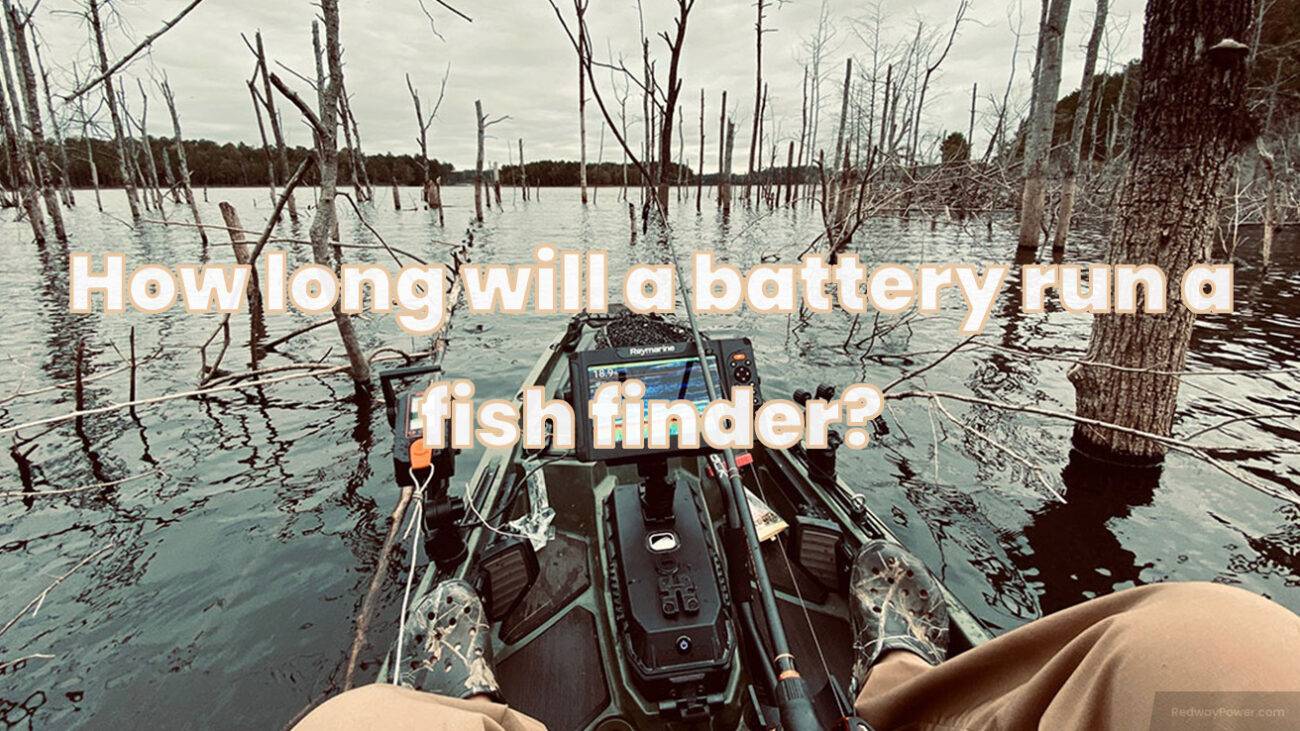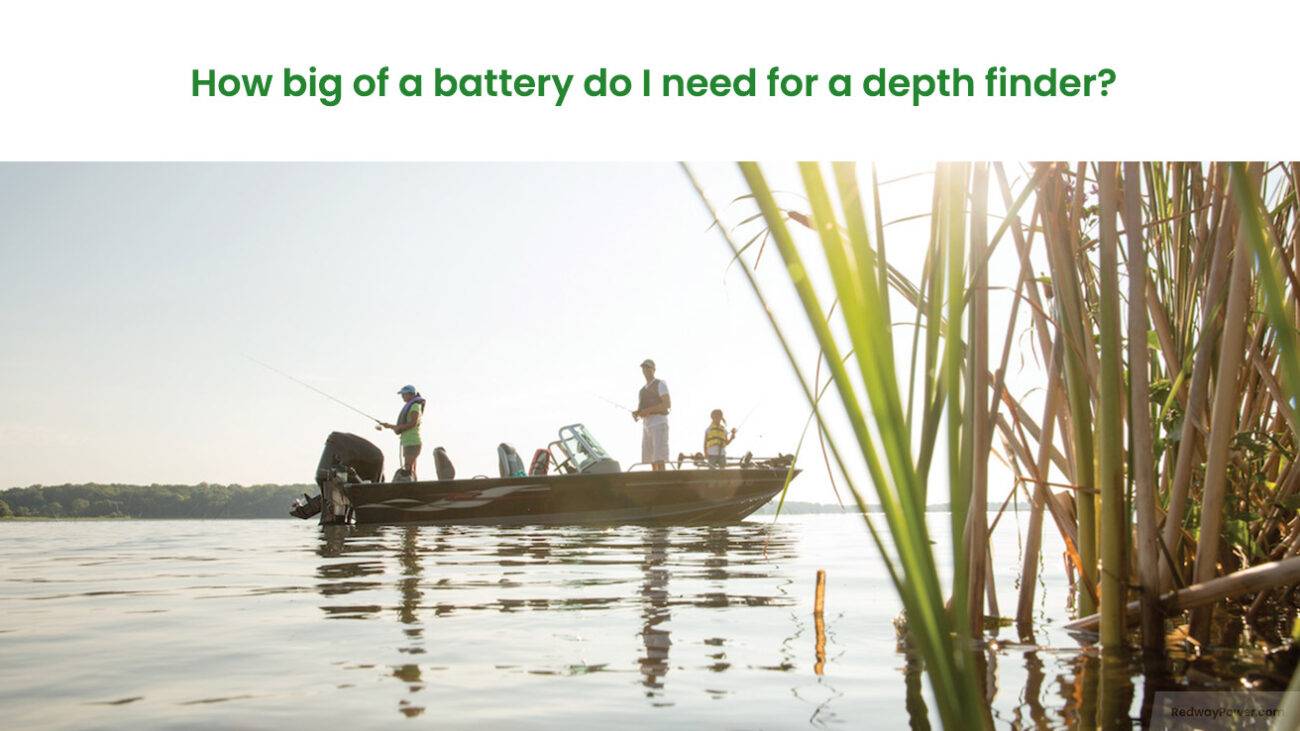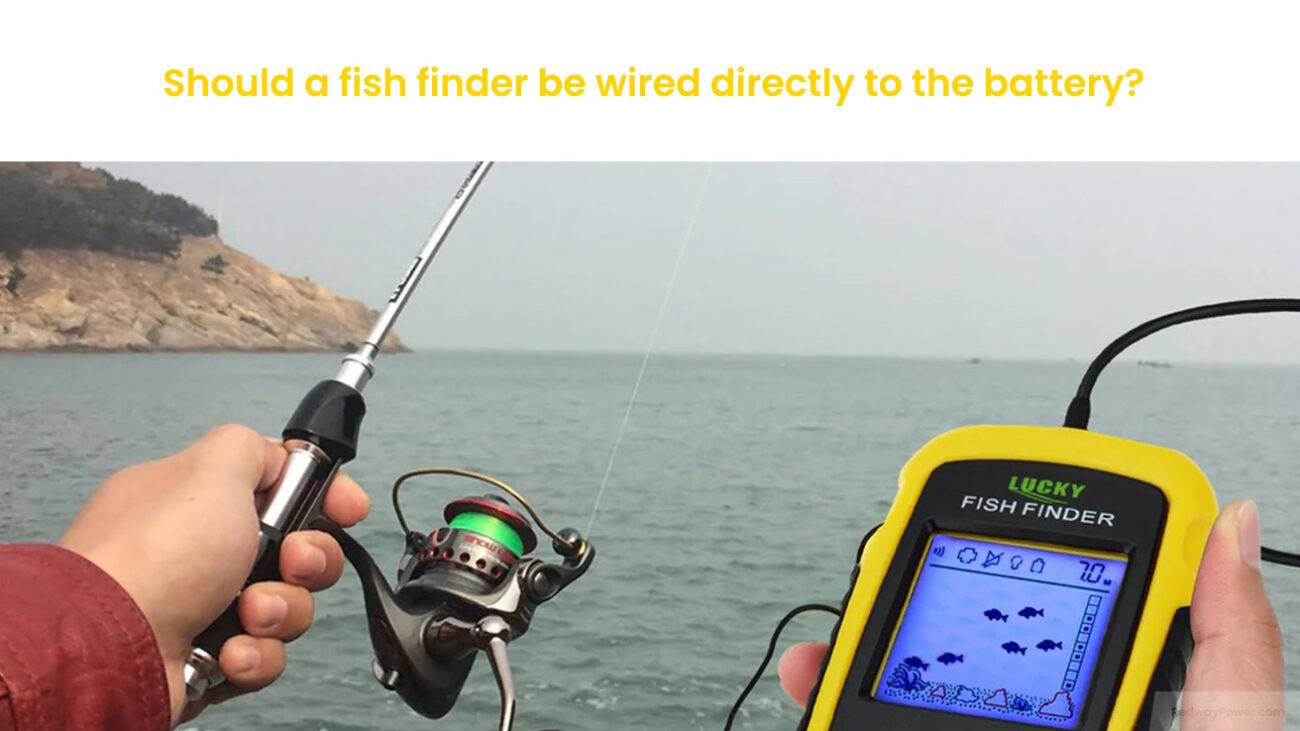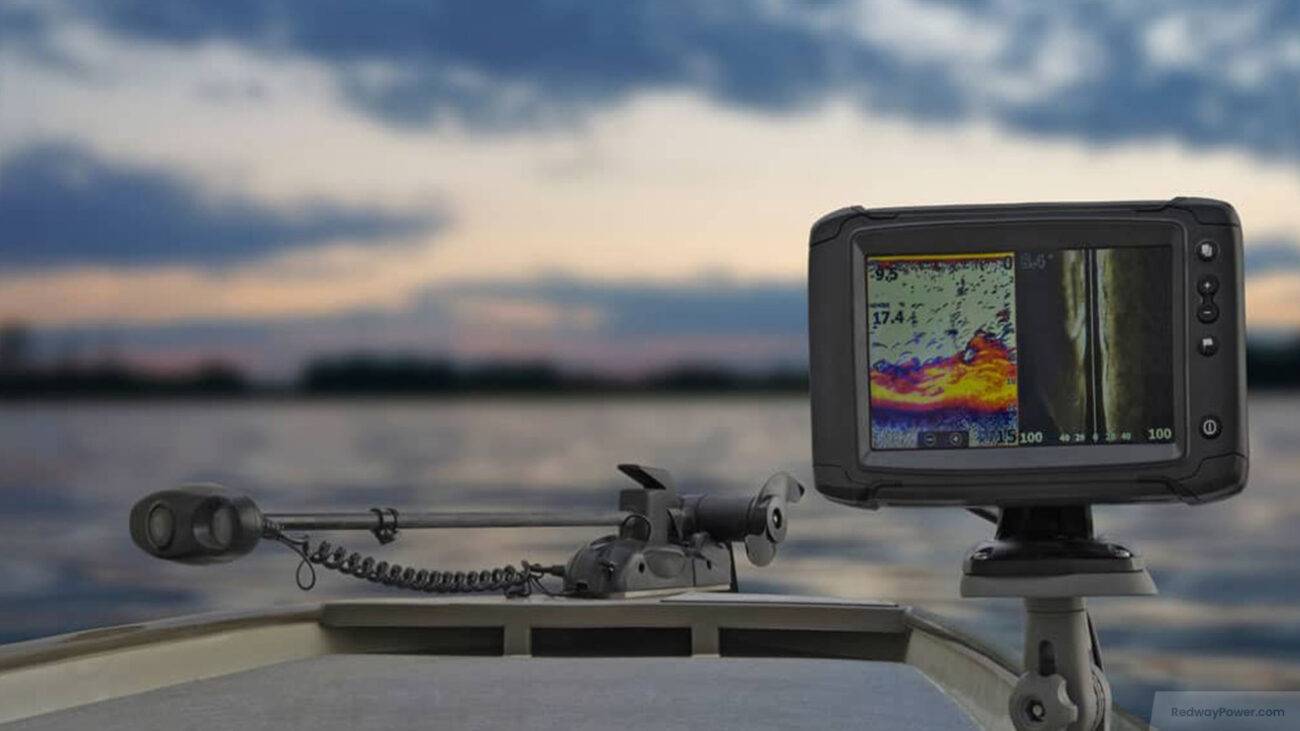Are you an avid angler seeking the ultimate fishing experience? Fish finders, designed to locate fish underwater, often come with an additional feature – GPS. In this blog post, we’ll explore whether adding GPS to your fish finder is a necessity, discussing the benefits and considerations. So, gear up, cast your line, and let’s unravel the world of fish finders with GPS!
Benefits of Having GPS on Your Fish Finder
Integrating GPS into your fish finder brings a multitude of benefits, transforming your fishing experience. Let’s explore the key advantages that enhance navigation, location marking, tracking, mapping, and safety.
- Effortless Navigation:
- GPS simplifies the process of finding specific fishing spots without relying on guesswork.
- No more uncertainty – navigate with precision to reach hidden hotspots effortlessly.
- Convenient Waypoint Marking:
- Easily mark and save productive locations for future visits.
- Efficiently track successful areas or save the spot where you landed a prized catch.
- Comprehensive Tracking and Analysis:
- Record and analyze your fishing path using GPS tracking features.
- Identify fish congregations, behavior patterns, and optimize strategies for future trips.
- Advanced Mapping Features:
- Benefit from detailed underwater terrain insights, including depth contours and structure details.
- Improve targeting by understanding fish habitats and preferences based on advanced mapping.
- Enhanced Safety Measures:
- GPS integration ensures easy navigation back to the starting point, especially in unfamiliar waters or adverse conditions.
- Pinpoint your exact location for increased safety and peace of mind during every fishing adventure.
Having GPS on your fish finder isn’t just a convenience; it’s a game-changer that elevates your efficiency, strategy, and overall enjoyment on the water.
Types of GPS Systems for Fish Finders
Choosing the right GPS system for your fish finder involves considering various options. Let’s explore the types available, each catering to specific needs, from internal GPS units to external modules and wireless connectivity.
- Internal GPS:
- Built directly into the fish finder unit for an all-in-one solution.
- Convenient and eliminates the need for additional equipment, providing basic navigation capabilities.
- External GPS Module:
- Offers advanced features and more accurate positioning data.
- Requires a separate power source and may include additional cables or mounting hardware for enhanced functionality.
- Wireless Connectivity:
- Enables connection to smartphones or tablets via Bluetooth or Wi-Fi.
- Ideal for those who prefer mobile apps for navigation or wish to share fishing spots with others.
- Handheld GPS Devices:
- Portable units offering flexibility for users fishing from different locations.
- Provides an independent GPS solution that can be easily carried around as needed.
Consider factors like accuracy, ease of use, compatibility, and budget when selecting the GPS system that best aligns with your specific fishing requirements.
How to Choose the Right GPS for Your Fish Finder
Choosing the right GPS for your fish finder involves considering crucial factors for an enhanced fishing experience. Let’s delve into the key aspects that will guide you in making an informed decision.
- Compatibility:
- Ensure the GPS is compatible with your specific fish finder model.
- Not all devices are the same, so double-checking compatibility is essential for seamless integration.
- Desired Features:
- Identify essential features such as mapping capabilities or waypoint marking.
- Knowing your specific requirements helps narrow down options for a personalized fishing experience.
- Ease of Use and Durability:
- Prioritize an intuitive interface and clear instructions for user-friendly operation.
- Select a GPS system that is durable and can withstand exposure to water, sunlight, and outdoor elements.
- Budget Considerations:
- Find a balance between functionality and cost-effectiveness.
- While advanced options are tempting, aligning features with your budget ensures a sensible investment.
By considering these factors, you’ll be equipped to choose a fish finder GPS system that aligns with your needs, providing optimal performance on every fishing adventure.
Alternative Ways to Use GPS for Fishing
Beyond its fundamental role in navigation and spot marking, the GPS on fish finders offers anglers versatile applications to enhance their fishing experience. Let’s explore alternative ways to leverage this technology for more efficient and enjoyable angling.
- Marking Past Fishing Spots:
- Utilize GPS to save waypoints of successful fishing locations.
- Easily navigate back to proven hotspots, saving time and increasing the likelihood of future successes.
- Creating Custom Underwater Maps:
- Plot accurate waypoints to mark submerged structures like rocks or drop-offs.
- Enhance fishing strategy by targeting specific areas with known fish-attracting features.
- Tracking Trolling Patterns:
- Precisely track trolling routes and overlay them onto a map.
- Analyze movement patterns for better planning and optimization of resources during subsequent fishing trips.
- Real-Time Weather Integration:
- Some advanced fish finders offer real-time weather data through GPS connectivity.
- Stay informed about wind speed, wave height, and barometric pressure changes, contributing to safer navigation and improved catch rates.
- Geotagging and Social Sharing:
- Geotag photos of catches directly from the GPS-enabled fish finder.
- Share images and location details on social media or fishing forums, showcasing catches and helping fellow anglers discover new fishing spots.
In conclusion, the GPS on fish finders extends beyond navigation, offering anglers a suite of tools for strategic fishing, weather awareness, and social sharing. These alternative uses enhance the overall fishing experience for anglers of all levels.
Potential Drawbacks of Having GPS on Your Fish Finder
While GPS on fish finders provides various benefits, it’s crucial to be aware of potential drawbacks. Let’s explore these considerations to ensure a balanced approach to utilizing GPS technology in your fishing adventures.
- Reduced Traditional Navigational Skills:
- Sole reliance on GPS may diminish proficiency in reading charts and landmarks.
- Basic navigational skills should be maintained in case of GPS failure or technical issues.
- Cost Considerations:
- Fish finders with built-in GPS are generally more expensive than those without this feature.
- Adding a separate GPS unit to an existing fish finder can incur additional costs for purchase and installation.
- Battery Drainage Concerns:
- Extensive use of GPS features can accelerate the draining of the device’s battery.
- Adequate power supply or backup options should be ensured for extended fishing trips.
- Impact on Fishing Experience:
- Overreliance on GPS may detract from the traditional challenge and thrill of fishing.
- Some anglers prefer navigating through instincts and knowledge rather than relying solely on electronic devices.
- Risk of Complacency:
- Depending too much on technology may lead to complacency and reduced situational awareness.
- It’s essential to balance GPS usage with other critical aspects of fishing, such as observing water conditions and understanding fish behavior.
In conclusion, while GPS enhances fishing capabilities, understanding and mitigating potential drawbacks ensure a well-rounded and effective approach to using technology in angling.
Conclusion: Is GPS Necessary for Your Fish Finding Needs?
After delving into the world of fish finders with GPS capabilities, the question arises: Is GPS truly necessary for your fish finding needs? Let’s break down the considerations to help you make an informed decision.
- Personalized Fishing Style:
- For avid anglers exploring unfamiliar waters, GPS can be a game-changer, offering accurate positioning, navigational aids, and detailed maps.
- The ability to mark waypoints enhances the chances of consistent success, especially for those who enjoy mapping out productive fishing spots.
- Familiar Waters and Navigation Skills:
- If you primarily fish in familiar areas or possess strong navigation skills, a fish finder with GPS may not be essential.
- Some anglers prioritize features like advanced sonar or imaging technologies over GPS functionality for improved fishing success.
- Personal Preferences and Priorities:
- The need for GPS on your fish finder is subjective and depends on your unique fishing requirements and preferences.
- Evaluate how often you venture into new territories or rely on precise location tracking before deciding on a device with or without integrated GPS.
Conclusion: In essence, while GPS can enhance your fishing experience with valuable information and convenience, it’s not a universal necessity. Consider your priorities, explore available options, and find the fish finder that aligns best with your unique needs as an angler. Happy fishing!

